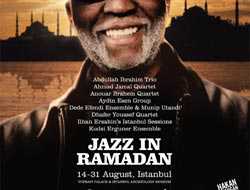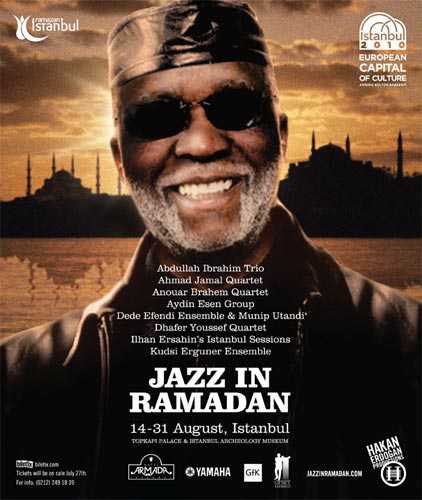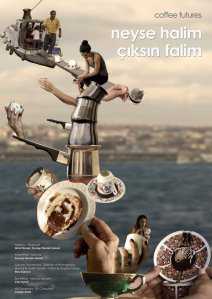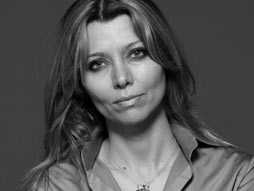In the article, “and Moreover” penned by Matthew Parris and published in the 12 August 1991 issue of The Times the author accuses Greece of pirating Turkish culture and tourism and he says that Turkish culture and tourism is far superior to Greek. The complete article is given below:
Haluk Demirbag
Turkish Forum Great Britain
“……..and Moreover”
by Matthew Parris
Although I couldn’t be happier on holiday here, there is a problem
about Turkey. For the turist, it lacks what the PR people would call
“a corporate identity”. Japan is cherry blossoms and Mount Fuji, isn’t
it? Australia is Kangaroos and Sydney Opera House, Beirut is bombs. So
what is Turkey?
This matters. Countries, like cigarettes, are sold on broad
recognition. For mass-marketing, a nation needs an image. A tourist
concept is at best a fraction of the truth and at worst a complete lie,
but it is an important lie. Scotland has been sold for generations on a
powerful myth involving kilts, bagpipes and haggis, Israel is currently
running an embarassing campaign depicting the place as a sort of
all-inclusive pizza of New Testament holiness, happy Arabs and
skindiving off Eilat. I’m sure it sells.
Spain, starting with Carmen, offers us the marketing man’s model:
bullfights, cascanets… scant justice to the great spread of peoples
and landscapes that is realy Spain, but potent. The United States shows
that neither the country nor the image need be primitive for promotion
under the banner of a clear corporate identity.
And that is Turkey’s tragedy. There was a perfectly marketable and
attractive image available-and the Greeks nicked it. A small, relatively
unimportant country on the fringes of big, central, crucial Turkey has
grapped our attention and elbowed its giant neighbour to the margins.
It is one of the best sleights of hand in marketing history.
The whole thing has been done on the backs of ancient Greeks and their
ruddy Parthenon. But the modern Greeks have little connection with their
ancient ones and occupy a different territory, which does happen to
include Athens. Most of the best Greek ruins, let alone Roman ones, are
in Turkey.
So the classy handle to the Greek tourist package is fake. Now open
the package. Ouzo, figs and bouzouki music? Much more of all three in
Turkey, under different names, Idyllic Mediterranean coast, coves
and beaches? Infinitely more of both, and better, in Turkey. Sun-kissed
islands? Turkey has these too: and do you know where the Greek ones,
which are largely barren, get the produce they sell to tourists as
Greek food? White-washed houses with blue doors? Yoghurt? Kebabs?
Goat’s milk cheese? All Turkish. Turkish food is similar to, but nicer
than, the “Greek” food we love to eat in London, but find disappointing
in Greece. I could go on. The scale of the larcency by which Greece has
corralled for itself the tourist heritage of a whole section of the
Mediterranean is breathtaking. And they complain about the Elgin Marbles!
This is far worse: pirating of cultural copyright. And this, though
it dwarfs modern Greece, is only the the bottom-left-hand corner of
Turkey we are disscussing. I haven’t touched the Black sea or the regions
of central and eastern Turkey, about which we know next to nothing in
Britain.
I blame Mrs. Thatcher. There are to many marginal north London
constituencies with to many Greek Cypriot voters for Turkey to get
so much as a friendly mention in Parliament. There seems to be no
Turkish lobby in Britain. And now they are calling it “Greek” coffee!
It’ll be Greek Delight next, mark my words, before the Greeks go on
to claim little red fezzes and decorated slippers as theirs… oops
sorry, a friend tells me the slippers are already sold to tourists on
the Greek islands.
You probably think I’ve been got at by the Turkish Tourist Board.
Not so. I have simply been poked in the chest in too many barbers and
fish and chip shops by the sons and doughters of the Greek Cypriots
who shot at us through the Fifties before settling down to moan that
Britain and the world should protect them from the Turks.
The last straw came when, on finding that the best way to get here
was to fly to a neighbouring Greek island and take the ferry to the
Turkish mainland, where there is no airport, I was informed that
the Greeks would confiscate my air ticket if I tried to return the same
way. Are they afraid that tourists who visit Turkey will rumble the
Greek Tourist Board conspiracy?
If you have time to go to a Greek prison, you might try a test case
with the European Court. Meanwhile, here is a suggested slogan for the
Turkish Tourist Board: “Discover the real Greece. Come to Turkey.”
 Istanbul, the main cultural hub of Turkey, will host worlwide known Muslim Jazz musicians, in Ramadan within a festival named “Jazz in Ramadan”.
Istanbul, the main cultural hub of Turkey, will host worlwide known Muslim Jazz musicians, in Ramadan within a festival named “Jazz in Ramadan”.





